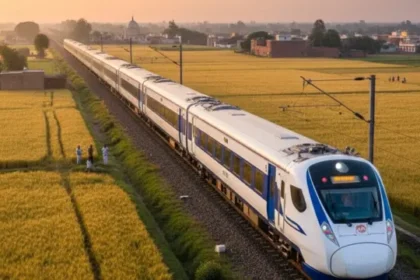Millions of Muslims all over the world unite every year to remember Barawafat or Milad-Un-Nabi, the anniversary of the birth of Prophet Muhammad. It is not just a date in the Islamic calendar, but a spiritual, cultural phenomenon that bisects geographic, linguistic and cultural boundaries. This is not to the Believers a moment to remember a historic birth but a moment to reflect on a life that has redefined civilizations, a life that will keep on redefining lives of more than 1.9 billion in the world.
Barawafat occupies a unique role in the history of Muslim festivals. It is an observance day of intense devotion, worship and renewing faith in the Prophet teachings of peace, worship, justice. But its religious significance has been superseded by the festival being a cultural/social event of immense proportions. Through the crowded markets of Hyderabad and Cairo, with their lamps and devotional music and the silent prayers of small village congregations in Indonesia and Africa, Milad-Un-Nabi connects the world through a collective sense of spirituality and cultural belonging.

Barawafat is not only a Muslim holiday in India, but a diverse Indian culture with many religions living in harmony has turned it into more than a mere festival of unity, charity and community ties. The humanitarian spirit of the festival is illustrated by recitations of the Quran, poetry glorifying the Prophet (naat) and feeding the poor in mosques, dargahs and neighbourhoods. The international celebration brings to the fore the versatility of the Islamic culture, as as far as its form and theme remain the same, local cultures make it something with different colors and symbols.
The capacity to relate the past to the present is the aspect of Barawafat that makes it particularly important to the contemporary world. It also gives us a memory of how the life of man born in 6-century Arabia continues to influence present-day toleration and humility as well as equality. In the context of grappling with the issues of segregation and cultural identity, Milad-Un-Nabi is the resonating voice of unity in diversity to promote religious awareness and culture in the world.
Historical Origins of Barawafat
Barawafat or Milad-Un-Nabi dates back to the first centuries of Islam, but, as many traditions, it was gradually developed, influenced by theology and culture. In Arabic Mawlid means birth in the Arabic language, yet it really means the birth of the Prophet Muhammad, a historical occurrence that most scholars and communities in the Islamic faith recognize to have taken place on the 12 th of Rabi-ul-Awwal during the third month of the Islamic calendar. It is a holy day to millions, and it was on this day that the Prophet entered the world and a new epoch in the history of man started.
During the lifetime of the Prophet, there was no official festival when the Prophet was born. Primarily early Muslims were interested in his teachings and the crusade of the sudden Muslim expansion into Arabia. But, centuries later, when Muslim societies became varied and more civilized, the necessity to honor his life in an organized manner arose. By the 11th and 12th centuries, the tradition of commemorating Mawlid had become widely accepted especially in Egypt under the Fatimid dynasty where the festivity had become institutionalized through large-scale gatherings, reciting of the Quran, and communal feasts.
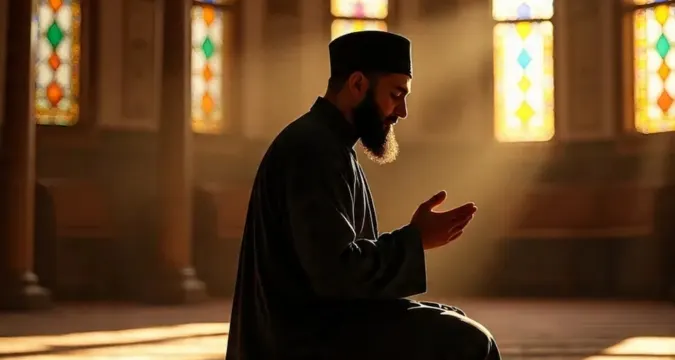
The tradition reached many parts of the Islamic world, including North Africa, the Middle East, South Asia and at some point, southeast Asia; all of which originate in Egypt. Every area made the observance adapted to their culture. In Turkey the sermons and illuminations in the mosques were in the centre. In South Asia, it was a day of poetry (naat and marsiya), processions and acts of charity, as well as a way to combine spiritual worship with social activities.
But Barawafat theology has not come easy. It has been argued by some Islamic scholars, particularly of stricter schools of thought, that because the Prophet never celebrated his own birthday, Muslims must avoid innovations (bid’ah) in their worship. Conversely, many scholars and Sufi schools highlight that reverence and adoration of the Prophet by remembering, poetry, charity, and gatherings are a valid and indeed a requirement of love and reverence. This equilibrium of opinions is also displayed in the current Milad-Un-Nabi practice which shows diversification of Islam and emphasizes spirituality.
So the history of Barawafat tells us more than a festival. They demonstrate the interplay between faith and culture, the role of history in rituals, and the role of the heritage of the Prophet Muhammad in motivating the generation in times and places.
Barawafat in India: Cultural and Social Dimensions
Due to its enormous religious and cultural diversity, India has traditionally been a bright beacon of practicing Barawafat. Styled Milad-un-Nabi in the native language and colloquially as Barawat, after the Urdu and Persian practice of counting the twelfth (bara) day of Rabi-ul-Awwal, the festival has acquired an air strongly Indian, mixing both devotion and culture.
Fetes in States and Cities.
The festival has many faces, and spans old lanes of Delhi to towns of Kerala, but it is always grounded in local traditions and is held together by some universal spiritual core. Hyderabad is one of the most apparent hubs of festivity, the day being characterized by massive processions that pass through the historic Charminar district. The worshippers bear green flags that signify tranquility and recite naats (peace be upon him) with the beat of drums. The city is brightly lit with ornamental lights, and congregations in mosques unite thousands of people.

Parks such as Park Circus are centers of action in Kolkata. Banners with sayings (hadiths) of Prophet Muhammad are hung in the streets, and local organizations distribute food to the poor and the needy. Barawafat is committed in Kerala, with special prayers in mosques, charity campaigns and Malayalam-Arabic recitations of qasidas (devotional verses), where Islam has a strong historical presence, through Arab traders.
In Northern India, especially Lucknow, these meetings at Sufi shrines and dargahs are blended with flourishing traditions of qawwali and Urdu poetry. The cultural heritage of the city makes Barawafat both a religious and artistic site, as it is a reminder of the strong sense of attachment to Sufism in the region. Even smaller towns and villages in Uttar Pradesh, Bihar and West Bengal have small but touching convenings, where community ties are reinforced by food-sharing and prayers.
The Humanitarian Spirit
Charity (sadaqah) is one of the attributes of Barawafat in India. Communities also hold mass distribution of food, commonly making rice, meat, and sweet delicacies that are given out freely to the poor regardless of religion. The practices of charity and inclusiveness, which Prophet himself professed, were reflected in the formation of community kitchens or langars by volunteer groups in several cities. This aspect of giving back highlights the reality that the festival is not only a festival of faith but a social responsibility.
State Recognition and Public Holiday.
Barawafat is a cultural holiday in India, and most states regard it as such. Government offices, schools and companies shut down on the day, and people in villages gather in multitudes in processions, sermons and social life. This acknowledgement also underscores the secularist integration of India, in terms of festivals of all major religions being recognized and honored nationally.
A Mash-Up of Religion, Culture and Community.
The difference with barawafat in India is that it can introduce religious holiness and vibrant culture at the same time. The seerat (biographies of the Prophet) recitation, naat events among children, mosque illumination and communal feasts all bring an atmosphere of mutual celebration and introspection. It is a celebration that goes beyond the mosque walls and into the very core of the society and reminds them of the message left by the Prophet, who preached togetherness, goodness and ethical living.
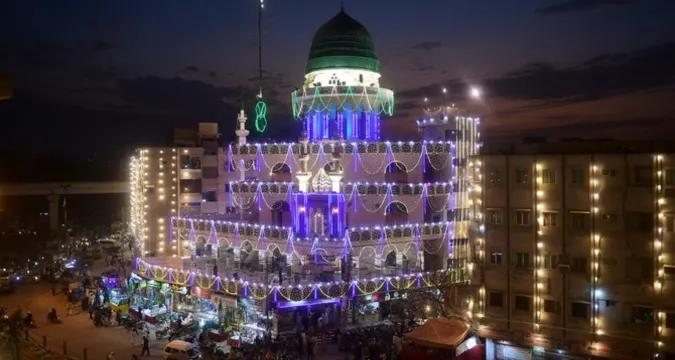
Barawafat in India, in other words, is not only an Islamic event, but a great big cultural occasion. As it shows the processes in which religious traditions are adjusted to local conditions, in which communities reinforce their civic community by devotional practices, and in which faith can find its utterances in art and poetry, and even community sympathy.
Global Celebrations of Milad-Un-Nabi
Although Barawafat occupies a unique position in the cultural and religious life of India, its celebration is not limited to the subcontinent by any means. Muslims across the globe observe Milad-Un-Nabi and do so in a manner that mirrors their history, traditions and local practices. What unfolds is an intriguing mosaic of devotion wherein the key theme of reverence to Prophet Muhammad is manifested in different cultural forms.
Middle East and North Africa
Milad-Un-Nabi in Egypt is a holy and a celebratory day. Markets in Cairo are filled with bright confectionery, particularly the famous Mawlid dolls and sugary candies, which are purchased as gifts to kids. Quran chants and sermons take place in mosques and Sufi groups organize meetings of religious poetry and memory. Blending spirituality with societal celebration in the Egyptian manner has ensconced the festival in the national culture.
In Morocco and Algeria, this day is celebrated with prayers in the street, family reunions, and collective dinners. Lectures are given and traditional songs and stories are told in the mosques to bring the children in contact with the teachings of the Prophet.
Pakistan and South Asia
Milad-Un-Nabi-In Pakistan, the Milad-Un-Nabi is a national holiday and one of the most significant religious events in the country. Green flags and lights are used to decorate the streets and mosques in the style of the festivity. Thousands of people gather in a procession and walk through such cities as Karachi, Lahore, and Islamabad, reciting devotional poems and singing praises of the Prophet. Special broadcasts are aired on the television and radio channels, and charity groups hand out food and necessities to the needy, echoing the values of the Prophet and his spirit of generosity and charity.
Bangladesh also commemorates the event as a national holiday with prayers and sermons conducted at the mosques. In the villages, the communities meet to have feasts where traditional foods will be prepared and the poor people will not be left out.
Turkey and the Balkans
In Turkey, Milad-Un-Nabi, also called Mevlid Kandili, is celebrated through spiritual contemplation as opposed to mass processions. The mosques get lit and religious leaders give out messages about the life and messages of the Prophet. Families pray all night, and in some communities offer sweet dishes such as lokma (fried balls of dough) to neighbors. In the Balkans, this can still be found in Albania and more so in Bosnia and Kosovo where they hold conventions of poetry and hymns to the Prophet.
Southeast Asia
In Indonesia, the largest Muslim dominated nation in the world, the festival is known as Maulid Nabi. It is a mixture of Islamic piety and local culture. Schools, mosques, and communities arrange parades with traditional music, colorful banners, and other cultural performances in Yogyakarta and Java. Pengajian (religious lectures) are conducted in mosques with the life of the Prophet being narrated and community meals are cooked and distributed to everyone.
It is a religious and civil event and on the day, Malaysians conduct formal parades, which are traditionally attended by political leaders. Cultural performances, such as the exhibition of Islamic calligraphy, are seen to contribute a layer of aesthetic value to the celebrations through the sermons and prayers conducted in the mosques across the country.
Western Nations and the Diaspora of Muslims.
In other countries like the United Kingdom, the United States, and Canada Muslim communities hold events at mosques and community centers and even in public halls. These meetings usually focus on interfaith communication, whereby non-Muslims are welcomed to hear what the Prophet said. The processions are not as large as in South Asia, but the devotion is the same. Milad-Un-Nabi is an identity-forging process among the typical diaspora Muslims; a process that allows them to transmit values to the younger generations.
On a world map, Barawafat is not a segmented global practice but a cultural fragmentation. It could be the celebrative processions in Pakistan, the peaceful prayers in Turkey, it could be the colorful cultural dances in Indonesia, but the core is always the same, celebrating the life of the man whose life is still inspiring and admirable by billions. This is the harmony of togetherness and difference that makes Milad-Un-Nabi a festival of colossal cultural eminence, which reverberates well beyond the borders of Muslim world.
Spiritual Signification of Barawafat.
In addition to the adorning, processions, and cultural celebrations, the best part of Barawafat is the spiritual meaning. In the case of Muslims, Milad-Un-Nabi is not a celebration of the birth of the Prophet Muhammad but rather a chance to look back into his life, contribution, and legacy. It is a reminder of values that could only be realized across the years – values that will always be highly applicable in a world that has mostly been segregated through conflict and inequality.
A Day of prayer and Thanksgiving.
After all, Barawafat teaches the believers to reflect on the life of the Prophet with gratitude. Prophet Muhammad was born in the city of Mecca in 570 CE, a period commonly known as the Year of the Elephant, and eventually developed to be a man full of integrity, sympathy, and fairness. His life as a simple orphan up to the last Messenger of Islam is recalled in the speeches and meetings of the Barawafat, giving the followers of Islam the motivation to attain such qualities in their lives too.
Acts of Kindness and Charity
At the heart of the celebration is that charity (sadaqah) and compassion are stressed. In the same footsteps of the Prophet, Muslims spend the day assisting the unfortunate. Whether it is handing out food in communal kitchens, giving out clothes and money, or arrangement of medical camps, such forms of altruism turn Barawafat into a service ordeal. This makes the day a living manifestation of one of the most significant teachings of the Prophet that serving humanity is a sort of worship.
Teaching and Learning
Milad-Un-Nabi is also a day of reflection and learning. Scholars hold talks in mosques, schools and community centres about the life of the Prophet, a kind of gathering called seerah. These teachings are not limited by historical accounts; they are directed at the modern-day practice of the Prophet’s values and principles; truthfulness in business, justice in political affairs, courtesy to neighbors, and tolerance in home life. Children are also instructed to participate in naat recitations and competitions in a way that the young generation would grow up being associated with their religious background.
Unity Through Devotion
Unity is yet another fact about Barawafat that is perhaps the most significant. Interpretations and practices do vary within communities but the main message is the same: love and respect toward the Prophet. Muslims across denominations come together in numerous locations to pray and feast, and leave theological arguments behind to unite in common worship. This unity in spirit gains even greater significance in the modern international world where divisiveness seems to be the rule of the day.
A Universal Message
Although Barawafat is a purely Islamic festival, its values, such as compassion, humility, justice, and peace are universal. They are relatable by anyone of any faith or origin and this simple detail makes the festival not merely a religious one, but a reference to the moral compass of humans. It is also true that Milad-Un-Nabi is being embraced as a time to celebrate overall moral values and build cultural bridges in interfaith discourses unfolding in the world.
The spiritual meaning of Barawafat, in a way, makes it superior to rituals and customs. It is a festivity of ideals that the Prophet Muhammad practiced, ideals that are effusively demanded in the contemporary world. The festival focuses on a walk of kindness, justice and peace, and through reflection, charity, learning, and unity, such a walk is offered to the believers (and, in fact, any human) as an invitation to walk.
Modern Views and Debates.
Like most ancient practices, Barawafat has changed over centuries of practice, cultural adjustment, and scholarship. It has not been changed in its nature; but the modern views bear witness to the fact that the festival acquired even greater significance and became more significant to the modern world.
Additional Deceits and Red Artist Relations.
Milad-Un-Nabi has always been discussed in the Muslim community. Other conservative scholars claim that the mere fact that the Prophet did not celebrate his birthday himself means that the establishment of the birthday festival is bid’ah (religious innovation). They point out that the love towards the Prophet cannot be expressed by celebrating one particular event but by adhering to his teachings daily.
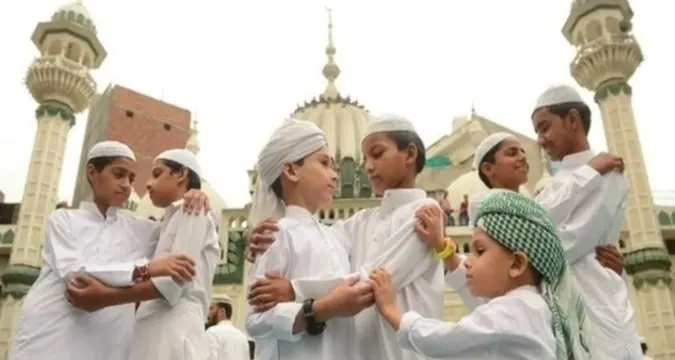
Conversely, there are myriads of scholars, Sufi leaders and cultural committees that use Barawafat as valid and even a necessity to signify devotion. They state that congregating to recite Quran, glorify the Prophet with poetry and charity are all worship as per Islamic teachings. Such a plurality of opinion highlights the abundance of Islamic thinking, in which religion and culture co-exist in plural interpretations.
Interfaith Importance
Over the past decades, Barawafat has acquired new meaning in a multicultural society. The festival does not just exist within a Muslim community, especially in nations such as India, the United Kingdom, and the United States. The interreligious dialogues, cross-cultural displays, and the large congregations coincide with the Milad-Un-Nabi and the non-Muslims will be subjected to the mercy and goodwill of the Prophet. Such interactions have an effect that results in the improvement of knowledge and harmony in the societies where two cultures are living.
Media and Digital Celebrations.
The Barawafat has also transformed past the 21 st century. Naat recitations, streamed Quran classes, and lectures delivered by scholars around the world have flooded social media. The global celebration is marked with hashtags like barawafat and MiladUnNabi, the tendencies of which are followed all over. Online meetings establish an essential connection to history to the diaspora peoples and even practice that traditions are substituted even in the remote ancestral states.
Civic and Cultural Recognition.
Milad-Un-Nabi is a cultural holiday recognized by governments of most Muslim majority countries, and India, Pakistan, Bangladesh, and Indonesia are no exception. Local councils and community organizations in even non-Muslim countries commemorate the event, and it has been listed in multicultural calendars. This awareness puts Barawafat into a different category than a religious celebration – it is a symbol of cultural identity and citizenship.
Dealing with Contemporary Demands.
The value of Barawafat today is also in its reaction to global challenges. This timely teach about the festival messages on compassion, equality and community welfare comes at a time where religious intolerance, polarization and social inequality thrive in subsequent increasing degrees. Many organizations have made the event a platform to raise awareness on social issues – including environmental sustainability, health care accessibility and in other applications, the message of the Prophet is packaged in such a way that it can be identified as relatable to current issues.
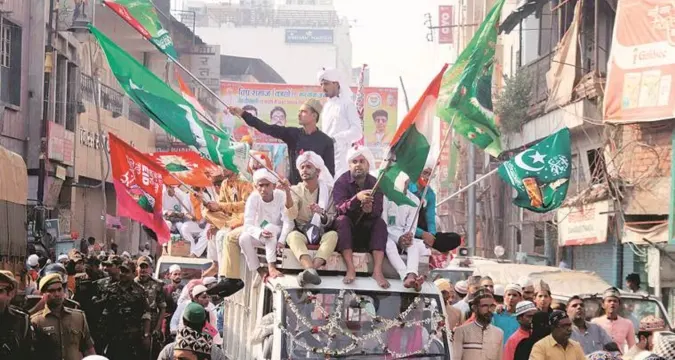
Therefore in the modern views on Barawafat we can see that it is not merely an extension of ancient traditions. It is dynamic, living and responsive to the needs of communities, culturally diverse and has to which individuals may relate and find agreement in an ever-changing world that is highly complex.
Barawafat 2025 and Beyond: Trends and Significance
With the world entering a new period of digital integration, social awareness and the understanding of cultural values, the performance of Barawafat has also acquired a new dimension, retaining the spiritual sense. The consecration of the birthday of Prophet Muhammad is also no longer an event where people gather around the country but a global event of thought involving outreach and manifestation in culture.
New and Old Observances 2025
The Barawafat (12th Rabi-ul-Awwal) will fall in the middle of September 2025 and the day will vary according to the lunar sightings of different regions. Millions of Muslims will flock the mosques, community centers, and homes all over India, Pakistan, Bangladesh, Indonesia, the Middle East, Africa, Europe, and the Americas. Governments in countries where there are large Muslim communities have already made announcements of the public holidays, and interfaith preparations and major cultural events are being made within the diaspora in the West.
Online and Virtual Parties.
The recent years are characterized by the striking trend of the digitalization of Barawafat. As social media sites such as YouTube, Instagram, and X (previously Twitter) become cultural spaces, naat recitations, Quran recitations, and online lectures have become seen by millions even beyond physical boundaries. Those who cannot be present in person can be connected spiritually with the Islamic scholars’ live broadcasting sessions of Mecca, Cairo, Karachi and London. Most community groups and mosques have planned to host hybrid events, or part online transmission, part physical meeting, in 2025 to reach audiences around the world.
Sustainable and Green Celebrations.
The other trend is the movement towards green celebrations. Organizers in some Indian cities such as Hyderabad and Lucknow are eschewing plastic decorations and firecrackers in favour of natural lamps, biodegradable banners, and tree-planting campaigns in memory of the Prophet. This green Barawafat movement equates the festival values of benevolence and responsibility to emergent modern problems of climate change and environmental destruction.
Community Welfare and Social Causes.
When it comes to social justice, which is the primary concern of the Prophet Muhammad, several Muslim organizations are utilizing Barawafat 2025 to call attention to pressing humanitarian issues. Setting up free health camps and blood donation teams in India and Pakistan, food relief colonies to refugees in the Middle East and Africa, the festival is becoming more and more associated with community work. Muslim communities in the West also combine charity with interfaith work, building more connections with the broader community.
Juvenile Delinquents, Response and Prevention.
Barawafat 2025 is also highlighting the younger generation. Schools, madrassas, and cultural institutes are conducting essay contests, debates, and storytelling about the life of the Prophet. Social media influencers have been playing a role in producing short and limited access videos on his teachings to ascertain that the festival is appealing to the young generation in an era of speedy online consumerism.
Barawafat in 2025 and later is not only a reminder of the past, but also a festival of the future. The celebration promises to be relevant in generations to come by adopting technology, sustainability, and social responsibility. More to the point, it also confirms that the message of Prophet Muhammad, which was that of peace, compassion and justice, still serves humanity to avert all the troubles the contemporary world throws at them.
Why Barawafat Matters Today
When the world faces the challenge of new cultural boundaries, social injustices, and urgency to engage faiths in dialogues, Barawafat is a reminder of eternal principles that can be curative and bonding, even inspiring. It is not just the celebration of the birth of Prophet Muhammad but it is also a reiteration of values that have remained significant in society today.
Festive–a festival of unity in diversity.
Among the most striking characteristics of Barawafat is the fact that it is universally accepted by all Muslims despite the theological differences or geographic borders. Be it the colorful parades of Pakistan, the calm prayers of Turkey, or the multi-faith activities of the Western countries, the festival unites people together with the same banner of love to the Prophet. Barawafat is a compilation that reveals how faith can live side by side with diversity in India, where religious and cultural pluralism is a nation-defining characteristic.
A Cultural Event of staggering Significance.
In addition to the religious nature of it, Barawafat has become a marker of identity. Traditions of the festival such as devotional poetry, lit mosques, shared dinner, and altruism enhance local cultures and capture universal values of Islam. It remains a living illustration of what religion and culture may interweave to give birth to practices that are spiritually inward and social in a wider manner. The festival reaffirms the contributions of the Muslim communities in influencing the cultural heritage of India and most other countries.
Meeting Contemporary Social Requirements.
There is also high contemporary relevance in Barawafat. Its charity is aligned with the global call of mercy in addressing poverty and inequality. Its message of peace can be felt with great force during the conflict and polarization. And its expanding connection to environmental campaigns demonstrates that the time-honored values can be transferred to current problems such as climate change. In most aspects, the teaching of the Prophet seems to have re-emerged in new meanings when observed in such a socially-conscious way.
A worldwide message to humankind.It is based on Islam, but the same values emphasized by Barawafat such as humility, compassion, justice, and service to others surpass religious boundaries. This is universality and why Milad-Un-Nabi is not only a Muslim festival but it is a cultural festival of the world and its teaching has lessons to the entire humanity. In multicultural societies, the day emerges as an outreach that unites people within communities and creates a sense of comprehension and value across boundaries of beliefs and customs.
Time Out In the current divided world, Barawafat is important as it serves to remind us that the nature of religion is not separativeness, but inclusivity, not exclusiveness, but inclusiveness and not ritualism as an end in itself, but service. It is a festival, where history, culture and spirituality come together to provide a route of hope and harmony in the future.
Endless Impact of Prophet Muhammad: Known outside of Religion.
The importance of the life and teaching of Prophet Muhammad is not just recognized by the Muslim world but also by scholars and historians around the world. An example is the famous book by Michael H. Hart titled The 100: A Ranking of the Most Influential Persons in History. Hart listed Prophet Muhammad as the greatest human being in history at the very top of his list in this monumental work, published in 1978 and revised in 1992.

Hart was both historical and analytical in his reasoning. He noted that Prophet Muhammad did not only establish one of the largest religions in the world but also a successful political and social ruler. Contrary to most other historical figures who were only able to impact on a single aspect of human life, Prophet Muhammad (peace be upon him) impacted on both spiritual and temporal dimensions, establishing a faith community and at the same time developing a just social order.
This international popularity serves as a confirmation of why Barawafat is not a religious festival of one person. It is a wakeup call to the fact that the influence of the Prophet still extends across time, geography and culture. From 7th-century Arabia to the international board of 21st century, his philosophy of faith, compassion, justice and unity still reverberates and made him second to none in terms of religious and historical worship as well as academic scholarship.
In the era where it is quite common to see lists of most influential leaders coming and going with the latest trends and political agendas, the fact that despite all the changes, Prophet Muhammad always stands at the very top of the list of such influential leaders according to independent historians such as Michael Hart illustrates why Muslims all over the world hold his birth in such a high manner. But Barawafat is not just a commemoration but an assertion of a heritage that everyone recognizes as one of the greatest in human history.
Conclusion: Barawafat as a Living Legacy of Humanity
Not that Milad-Un-Nabi or Barawafat is only a date in the Islamic calendar. The Prophet Muhammad (peace be upon him) left a living legacy that still inspires billions of people through his life and teachings. This day has an overture of timelessness and universality, echoed in the mosques of Medina to the streets of India, in the cultural processions of Africa to the interfaith meetings of Europe.
This is what is really unique about Barawafat: its capacity to transform sacred into social. It is a reminder to the believers that they must endeavour to discover God in their mercy, fairness, and humility, and to ask communities to live collectively and to benefit the other. Only in a polarized world, this festival focuses on the ancient idea that religion has nothing to be done, but creates peace, compassion, and unity with bridges.
The world-wide awareness of the role played by Prophet Muhammad, even without the religious context – even author Michael H. Hart, when sampling the greatest figures in world history, ranks him the most influential of them all – shows that his influence cuts across faith, geography and time. He is popular among millions because he left an imprint in the hearts of billions of people not because of his number of influences but because of the universality with which he impacted spiritual thought and social organization.
Barawafat is therefore not only a festival, but also a restatement of the shared human values. It is a demand to reconsider how ancient laws of benevolence, charity, and fairness can lead the way of us in this age. Most importantly it is the invitation to respond to the Prophet not just by ritual, but by action, action that responds to his message which is to be merciful, just and compassionate to all of creation.
The values that made Barawafat evergreen will not fade away as long as the world will remember Barawafat not only as a form of religious observance but as a source of light throughout the global history of humanity.







